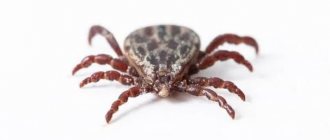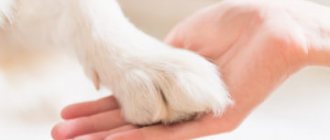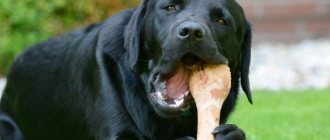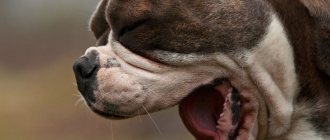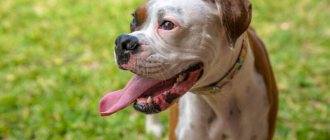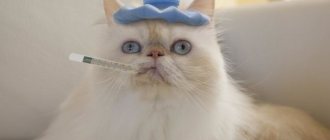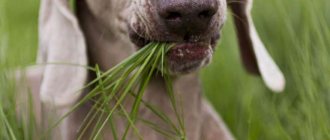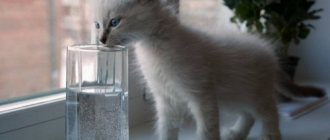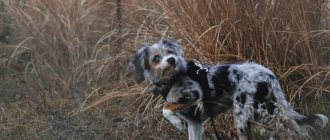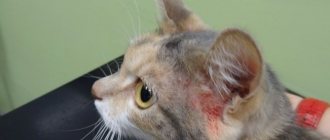A person gets a dog to guard property and protect his family, or simply to have a loyal creature nearby. For many centuries, dog breeds developed independently of humans, but in recent decades, humans have learned to create new breeds artificially.
Now we can get a dog adapted for living in small apartments, which does not require constant walks in the fresh air.
Causes of poor appetite in animals
If your puppy is not eating well, has missed a couple of meals during the day, is not in the mood, is lethargic and inactive, then the most likely cause may be an underlying illness. You can check this in the following way - go outside and take a walk with your pet.
If your ward remains lethargic and is not happy about the fresh air and being outside, then something is still bothering him. In this case, you need to pay attention to the humidity and temperature of the nose.
A healthy puppy, with the exception of some dog breeds, should have a moist and cool nose. If these symptoms are also accompanied by:
- presence of redness, inflammation or discharge in the eye area;
- bad odor from the mouth and unhealthy color of the tongue;
- discharge from the ears, firm to the touch and clear;
The presence of at least one of the above points may indicate the presence of diseases and, as a result, contact a veterinarian.
When buying a puppy, new owners begin to feed the animal food that is unfamiliar to it. In such a situation, you will immediately notice that the puppy has begun to eat poorly. It is better to ask the previous owners in advance what kind of food they had before and continue to do as they did.
A puppy may not eat food well because he simply doesn't like it. In this case, it is better to focus your attention only on natural products.
If you observe that your pet is cheerful, runs around and reacts quite well to its name, perhaps the reasons lie in something completely different. To find out, we recommend using several methods that will certainly help increase your pet’s appetite.
What diseases cause loss of appetite?
Almost all diseases reduce appetite; due to poor health, the dog refuses to eat. Common reasons include:
- pathologies of the oral cavity (periodontitis, stomatitis, caries, tartar, etc.);
- ear infections;
- during chemotherapy, appetite practically disappears;
- gastrointestinal diseases;
- foreign bodies along the gastrointestinal tract.
With any pain syndrome, the dog eats poorly, since its attention is diverted to discomfort. Along with anorexia, there may be trembling, difficulty breathing, and the pet tries to move less.
Viral and bacterial infections are almost always accompanied by fever (above 39C). With hyperthermia, the dog tries to drink more and eats poorly.
With numerous injuries, post-traumatic shock and large blood loss develop; under such conditions, one cannot talk about appetite. When certain medications affect the stomach, the dog may not eat well.
What to do? Puppy Nutrition Tips
Try skipping breakfast, and next time offer him the same food you gave him in the morning. Perhaps you simply spoiled him with food. Even if your pet misses lunch, then for dinner give him the same food that was offered for breakfast and lunch, then the puppy should start eating.
Also be sure to ensure the freshness of the food you use to feed your puppy. It is very important to know information about the proper feeding of your pet. It is necessary to maintain a routine and balanced diet.
Have you noticed that the puppy only managed half the portion? Most likely, the portion was larger than normal. Therefore, when feeding again, you just need to reduce the portion. Some owners very often offer the animal a portion disproportionate to the dog’s parameters.
You can use another trick. To increase appetite, give your pet a good walk. Being in constant motion, the desire to eat will arise many times faster than being sedentary in an apartment or in the country. Therefore, go out into the fresh air more often with your pet. When you return home, be sure to feed your dog. There is a high probability that the puppy will start eating after exercise.
If your appetite still does not appear, we recommend trying another method. Before you go to feed your puppy, give him a couple of pieces of salted fish. Such food promotes a good appetite.
There are dog breeds that love fish as much as meat. Use this method only if the previous ones did not produce any results. Just don’t overdo it with canned food, as salt in large quantities is harmful to dogs.
If you feed your puppy cereal and constantly give it one type, then change it to another. If your pet still doesn’t touch the food, then add his favorite treat.
Lack of appetite and related symptoms
There are signs that, coupled with anorexia, indicate a critical situation with the animal’s health. It is useful for a dog owner to know such a symptom complex in order to react quickly and deliver the pet to the RosVet EC.
Next, the dog is examined, in addition to general tests, the following is prescribed:
- fluoroscopy;
- endoscopic examination;
- Ultrasound of internal organs.
The list of symptoms that may accompany anorexia includes:
- if the dog only drinks, this indicates dehydration, Cushing's syndrome, Addison's disease, pyometritis, diabetes mellitus;
- the pet does not drink if it is poisoned, has liver or pancreas diseases;
- hyperthermia occurs with a cold, viral or bacterial pathologies;
- vomiting due to gastrointestinal problems (including volvulus, blockage), helminths, increased blood pressure, ICP, poisoning;
- vomiting with diarrhea, which develops with poisoning, dehydration, viral enteritis and worms;
- hyperthermia with diarrhea and vomiting occurs with severe infectious diseases (plague, enteritis);
- vomiting with foam - if the pet is starving for a long time or has worms;
- Yellow mucous membranes and skin indicate piroplasmosis or liver problems.
With severe pain, the dog not only does not eat, but also breathes heavily, trembles, and does not move. If your pet stops responding to external stimuli, appears in a lethargic state, and does not drink, you need to urgently take him to a veterinary clinic, examine him and begin treatment.
When is a veterinarian needed?
A visit to the veterinary clinic is necessary in the following situations:
- Positive visual inspection. If, when analyzing your pet’s condition, you still find some pathological discharge, ulcers, rashes, injuries, swelling, etc.
- Prolonged fasting.
- Aggressive behavior of the animal.
- Diarrhea or other gastrointestinal disorders.
- Weight loss.
- Cough, difficulty breathing.
- Bleeding.
- Lack of urination.
- Bad breath.
- Profuse drooling.
- Lethargy, inability to move, forced position.
- Pathological hair loss.
- Any other cause for concern (seems like something was swallowed).
The doctor will conduct laboratory and instrumental examinations for your pet in order to clearly identify existing problems and select an appropriate treatment plan, and the Gomeovet Veterinary Pharmacy and Pet Store will help you buy all the necessary medications and toys so that recovery is not only high-quality, but also fun.
Remember that the health and happy life of your pet depends on you.
What to do if your dog doesn’t eat well: how to treat it
Therapy always depends on the underlying cause. In situations that do not pose a danger to the pet, it is necessary to observe for several hours; if the situation does not change or becomes worse, the help of a veterinarian at the RosVet EC is mandatory.
You should not feed your dog food that is not intended for consumption. This includes fatty (pork lard, interior fat, etc.), sour, moldy, burnt, table waste.
For overly picky dogs, they produce industrial (ready-made) food with an attractive taste. Sometimes it’s just good for them to skip feeding so that they have an appetite. Between feedings you should not give “pieces”, this leads to obesity and refusal of the main portion.
Active walks before feeding increase appetite; it is advisable to walk your pet before meals, since gastric volvulus may develop immediately after.
If the dog begins to eat poorly, call a veterinarian at home or take the pet to the RosVet VC. Make an appointment by phone, the clinic accepts 24 hours a day!
Reducing food requirements in growing puppies and older dogs
A dog has a hot nose: causes and what to do
In the first days of life and until the age of two months, the puppy should eat at least six times a day. Further, the number of feedings will depend on age:
- puppies 2–4 months old are fed 4 times a day;
- A 4 month old dog needs less food. Until the age of six months, he is supposed to eat three times a day;
- from 7 months to a year the dog will be content with two meals a day;
- From the age of one year until the end of its life, the dog only needs one feeding.
As the dog ages, the owner changes the composition of his diet and reduces the number of servings.
Feeding a two-month-old puppy should be strictly on schedule
How to get your appetite back
If the cause of loss of appetite is illness, the problem should be resolved with a veterinarian. In other cases, you can try to solve the problem yourself.
- Do not feed your dog from the table.
- Combine eating with play. For example, you can reward your dog for walking or following commands.
- Reduce the portion. Perhaps the dog is simply not able to eat the large portion that you offered it.
- Change your diet. Perhaps the food you give your pet is too monotonous. Review your food system. Diversify the diet with other foods: if your dog eats beef, try chicken, add healthy vegetables. If you've been feeding dry food for too long, you might want to try switching to a natural diet.
- Walk and play with your dog often to help it burn off its energy and build up its appetite.
Walk and play with your dog more often to help it burn off energy and work up an appetite.
Diagnosis of diseases
Refusal to feed accompanied by lethargy is a reason to immediately consult a veterinarian. To make an accurate diagnosis, the following series of necessary tests are performed:
- general clinical analysis of blood and urine;
- blood chemistry;
- scraping and taking biological fluids for bacterial inoculation on nutrient media;
- ultrasound diagnostics.
In controversial cases, X-ray examination and endoscopy are prescribed to confirm the preliminary diagnosis.
Reasons for a dog's refusal to eat
An animal can refuse food in many cases, both completely harmless and threatening the dog’s death. The owner must carefully observe his four-legged friend and, in case of serious signs of illness, show the animal to a veterinarian.
There are the following causes of loss of appetite in dogs:
- Changing the usual food . Some animals react very sharply to changes in diet. In the case when the dog owner purchased a different brand of food instead of the one his pet was accustomed to, the animal may refuse to eat the new food. A dog on a natural diet may also not want to eat his dinner if any new ingredient has been added to the food.
- Frequent snacking . It is not recommended to feed the animal between meals, especially when the dog gets tasty morsels from the owner's table. In this case, she can easily refuse to eat her food.
- Feeding poor quality food . Food that is too salty or sour is unlikely to be eaten by your pet, so you need to check the quality of the food every time before giving it to your dog.
- Oral diseases . The pain felt from a broken tooth, infections of the palate, and gums are serious reasons for refusing to eat.
- Infectious and viral diseases . Almost all diseases caused by pathogenic microorganisms lead to loss of appetite. A serious reason to contact a veterinarian is not only a complete loss of appetite, but also other symptoms (fever, pain, vomiting, diarrhea, discharge from the eyes, nose, etc.).
- Signs of poisoning . Food or chemical intoxication can be very dangerous to your pet's health. Signs of poisoning are: refusal to eat, vomiting with foam, bile, diarrhea, lethargy, weakness.
- Diseases of the kidneys, stomach and intestines . Acute renal failure, pyelonephritis, duodenal ulcer, stomach ulcer, intestinal obstruction - not only cause loss of appetite in the dog, but also seriously threaten the life of the four-legged friend.
- The presence of parasites in the body . Worm diseases have a detrimental effect on your pet's health. A sick dog, in addition to lack of appetite, also exhibits other symptoms (increase in the size of the abdominal cavity, nausea, vomiting, diarrhea, constipation, pallor of the mucous membranes).
Some animals have high emotional sensitivity and may refuse to eat when depressed, sad, or sexually active. Often, separation (even short-term) from the owner is the main reason that a dog stops eating. During sexual desire, animals, especially males, often do not eat for a long time. In this case, you should not worry about the health of your pet; as soon as the sexual desire subsides, the dog will regain its excellent appetite.
If there are serious symptoms of various diseases, you should not expect the animal to recover on its own and under no circumstances should you force feed it. The best option would be to call a veterinarian at home, so the dog will be less exposed to stressful situations.
